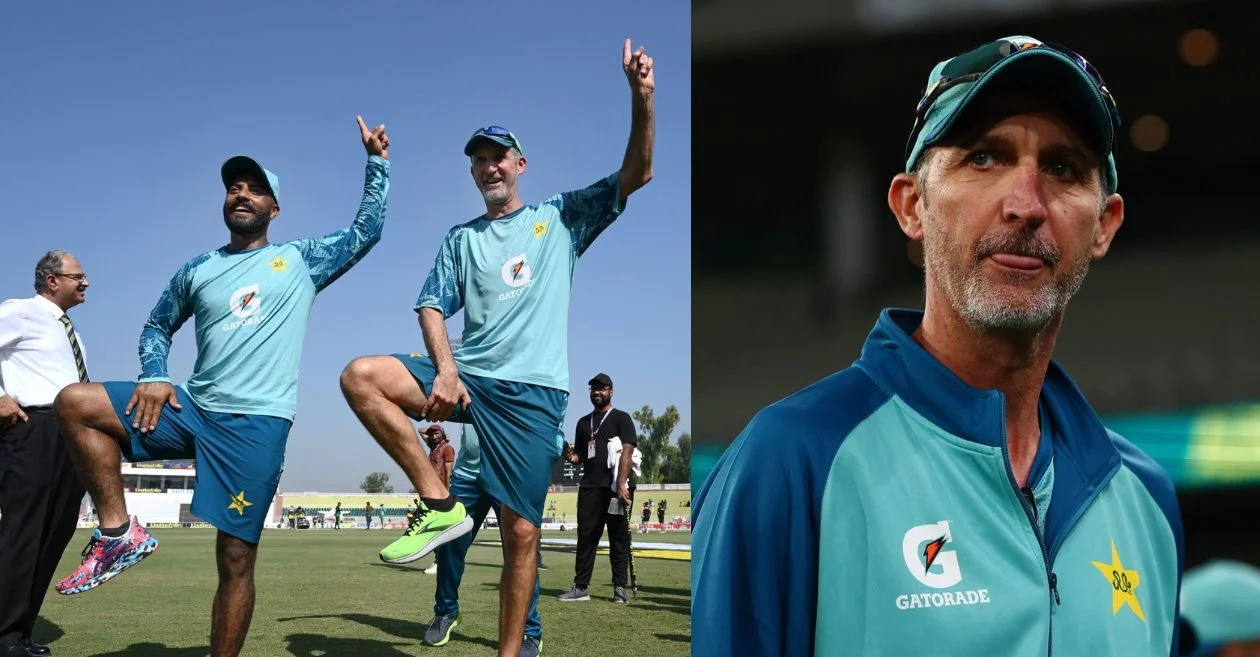Table of Contents
Jason Gillespie‘s sudden resignation as Pakistan‘s red-ball head coach has plunged Pakistan cricket into uncertainty. Appointed in April this year, Gillespie’s tenure was intended to bring stability and success to Pakistan’s Test team. However, his decision to step down less than two weeks before a high-stakes Test series against South Africa exposes underlying tensions within the Pakistan Cricket Board (PCB).
A setback for Pakistan cricket ahead of South Africa tests
This development comes on the heels of Gary Kirsten’s departure as white-ball head coach, further highlighting Pakistan’s ongoing struggles to maintain stability in their coaching setup.
Gillespie’s brief stint as head coach had its moments of success, including a Test series victory at home against England in October, marking Pakistan’s first Test series win on home soil in over three years. He also stepped in as interim white-ball coach for the tour of Australia, guiding Pakistan to an ODI series win. Despite these achievements, his tenure was overshadowed by internal discord, management conflicts, and dissatisfaction over the PCB’s handling of coaching roles.
With Aaqib Javed stepping in as interim head coach for both red-ball and white-ball formats, the PCB faces significant challenges in finding a permanent replacement capable of navigating the team through the upcoming Test series and the ICC Champions Trophy.
3 potential factors that led to Jason Gillespie’s resignation
1. Conflicts over selection authority and decision-making
A major factor contributing to Gillespie’s resignation was his lack of control over team selections. Several media reports indicated that Javed, who served as both selector and interim white-ball coach, wielded significant influence in team decisions, leaving Gillespie sidelined in key strategic discussions. Despite his role as head coach, Gillespie reportedly had minimal input in finalizing playing XIs, reducing him to a mere facilitator rather than a decision-maker. His frustrations with this arrangement were evident in October when he described his role as that of a “matchday strategist” rather than a traditional head coach.
2. Dissatisfaction over the handling of support staff contracts
Gillespie’s frustrations were further compounded by the non-renewal of Tim Nielsen’s contract as the high-performance red-ball coach. Nielsen, who had worked closely with Gillespie, was let go without consulting the head coach, leaving him blindsided and undermined. The decision, reportedly conveyed to Gillespie by Nielsen himself, deepened the rift between Gillespie and the PCB. This lack of communication and disregard for Gillespie’s input in support staff decisions highlighted the PCB’s failure to create a collaborative working environment.
3. Unrealistic demands and lack of professional respect
According to the Geo Tv report, Gillespie also faced additional pressures from the PCB, including requests to spend more time in Pakistan outside of series commitments. While such demands may align with PCB’s long-term vision, they clashed with Gillespie’s professional boundaries and personal commitments. The PCB’s refusal to meet his demands for a salary increase and greater decision-making authority further strained the relationship. The board’s treatment of foreign coaches, including Kirsten, who also cited unprofessional behavior as a reason for his resignation, points to a broader systemic issue within Pakistan cricket’s management.
Also READ: South Africa announces squad for the ODI series against Pakistan; Temba Bavuma to lead
Implications for Pakistan cricket
Gillespie’s resignation leaves Pakistan in a precarious position as they prepare for a crucial Test series against South Africa, followed by the ICC Champions Trophy. The lack of continuity in coaching roles undermines team morale and disrupts long-term planning. While Javed’s appointment as interim head coach may provide temporary relief, the PCB must address its internal management issues to attract and retain high-caliber coaches.
This scenario is yet another reminder of the need for professionalism, transparency, and mutual respect in managing international cricket teams. As Pakistan cricket looks to rebuild, the PCB faces the dual challenge of restoring credibility and creating an environment conducive to sustained success on the global stage.
